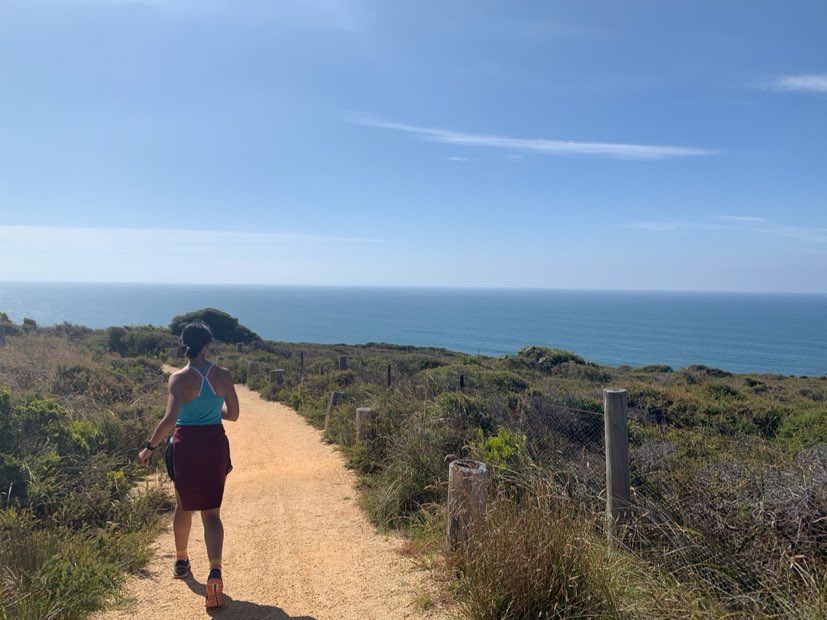For years we have been told of the many benefits that exercise has on our health. If you have forgotten some of the positives regular exercise has on our well-being, here’s a reminder:
Regular exercise has been shown to:
- Help improve physical strength
- Improve balance and mobility
- Help maintain a healthy weight
- Strengthen bones
- Help to cope with stress and anxiety
- Build self-esteem
- Provide a boost to energy levels
- Help to reduce the risk of or ability to manage chronic conditions such as high blood pressure and diabetes.
Did you know exercise can also play an important role during cancer treatment and in recovery?
Research has begun to uncover the helpful role exercise can play during cancer treatment and well into recovery. Exercise can help to reduce some of the side effects that are experienced during treatment. The following list includes common side effects experienced during treatment and the positive impact exercise can have.
1. Nausea
Maintaining physical activity can reduce the risk of experiencing nausea and help to lessen the severity of the symptoms of nausea during treatment.
2. Fatigue
Fatigue is commonly experienced during treatment, however exercising during treatment can help reduce the severity and the risk of fatigue and help to provide a much-needed energy boost whilst undergoing treatment.
3. Stress and anxiety
Stress and anxiety are often heightened during cancer treatment and in recovery stages. Engaging in physical activity is a great way to help manage stress and anxiety and has been shown to reduce high levels of stress and anxiety.
4. Lack of control
During cancer treatment, people often report feeling a lack of control, this is particularly evident in young adults undergoing treatment. Engaging in exercise has been shown to improve young adults sense of control, fostered feelings of acceptance and created a way to build and maintain their identity during treatment.
5. Sleep
Having difficulty sleeping can be experienced by people undergoing or recovering from cancer treatment. Exercise has been shown to help people undergoing cancer treatment to have a better night’s sleep. Just make sure not to exercise 1-2 hours before bed, so your body has a chance to wind down.
Having trouble finding where to start?
As always, it is vital to start by discussing exercise with your doctor and treatment team. They will tailor their recommendations to suit you and may refer you to a cancer exercise physiologist for ongoing support. When beginning an exercise program that your doctor or exercise physiologist has prescribed for you, it is important to remember the following.
1. Take it slow
Starting for the first time or after a period of not exercising can be difficult, make sure you take it slow and follow your health professional’s advice
2. Keep hydrated
It’s important to keep hydrated before, during and after exercising
3. Some days are better than others
Some days your energy will be low, listen to your body adjust your exercise to how you feel
4. Regular contact with your doctor or exercise physiologist
As your health changes, it’s important to check in with your doctor or exercise physiologist, they can help adjust your exercise program.
5. Exercise safely
Let someone else know if you go out for a walk or a jog, you may become fatigue part way through so it’s good for someone close by to know where you are.
6. Eat well
Eating food high in protein can be helpful to help nourish the body after physical activity.
Some tips on the best ways help you stay motivated:
Find an activity you enjoy
Physical activity is not limited to walking or jogging, there are many different types of activities you can do that will help give you all the benefits we outlined earlier. If you chose to do an activity that you enjoy doing, you are more likely to stay motivated to do it. Things to try instead of walking and jogging could be Pilates, yoga, swimming, dancing, bike riding or strength training.
Try doing the activity with a friend
Exercising with a friend is a great way to help you stay motivated. It often makes the activity more enjoyable and less daunting; it can give us that extra boost of motivation and you get to catch up with a friend whilst doing something that is good for your physical and mental health.
Plan exercise in your diary or set aside a time for exercise during your day
Planning when we would like to exercise helps us fit it in our day. Life can be busy and we aren’t always able to do all the things we want to, however, by setting aside some time during the week to exercise helps to make it a priority and allows us to block out some time for our physical and mental well-being.
References:
American Society of Clinical Oncology. (2019). Exercise during cancer treatment. Retrieved from: https://www.cancer.net/survivorship/healthy-living/exercise-during-cancer-treatment
Brunet, J., Wurz, A., & Shallwani, S. (2018). A scoping review of studies exploring physical activity among adolescents and young adults diagnosed with cancer. Psycho-oncology (Chichester, England), 27(8), 1875-1888. Doi: 10.1002/pon.4743
Burke, S., Wurz, A., Bradshaw, A., Saunders, S., West, M., & Brunet, J. (2017). Physical Activity and Quality of Life in Cancer Survivors: A Meta-Synthesis of Qualitative Research. Cancers, 9(5), 53. Doi: 10.3390/cancers9050053
Cancer Council. (2019). Exercise after a cancer diagnosis. Retrieved from: https://www.cancercouncil.com.au/cancer-information/living-well/exercise-cancer/
Moraitis, A., Seven, M., & Walker, R. (2021). Physical Activity in Young Adult Cancer Survivors: A Scoping Review. Oncology Nursing Forum, 48(2), 184-194. Doi: 10.1188/21.ONF.184-194
Enjoy reading this?
Join our newsletter today!

